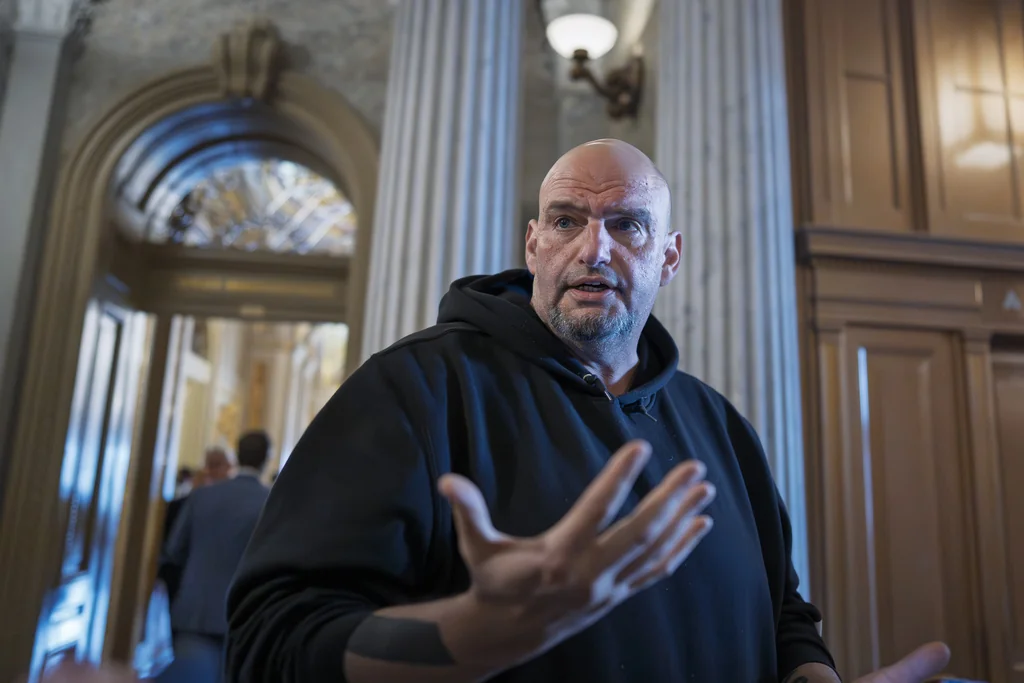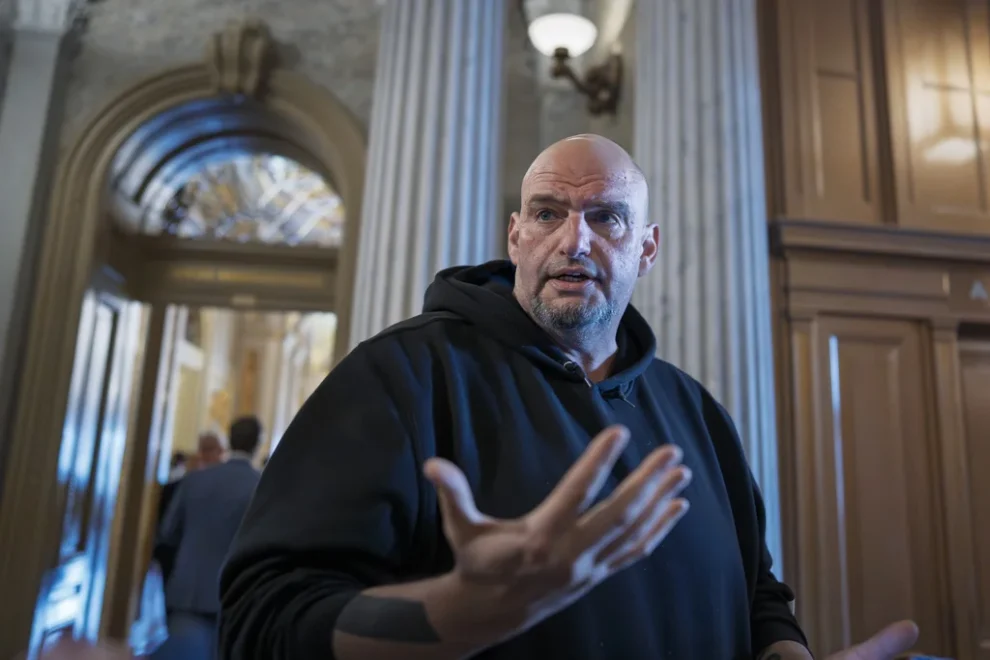Sen. John Fetterman (D-PA) offered no apologies Monday for missing dozens of Senate votes earlier this year amid mounting reports of lingering mental health troubles affecting his core responsibilities as a Congress member.
Fetterman, speaking at an event with Sen. Dave McCormick (R-PA) in Boston, defended his absences for votes that he described as a waste of time.
“I’ve made 90% of them, and we all know those votes that I’ve missed were on Monday. Those are travel days, and I have three young kids,” Fetterman said. “Those are throwaway procedural votes that were never determinative or were important. That’s a choice that I made. And if you want to attack me for that, go ahead.”
Fetterman has missed 30 floor votes this year and had the third-worst attendance in 2024. In recent weeks, he has not skipped any votes following a series of negative media reports and current and former staffers raising alarms about his behind-the-scenes behavior. Many of the votes Fetterman missed this year, which account for 30 of 281 votes taken, or about 10%, were President Donald Trump’s nominees.
Fetterman recycled past criticism that the media has been engaged in a “smear” campaign for his positions on hot-button matters, including his staunch pro-Israel stance and support for cracking down on illegal immigration.
“The left kind of media continues to have these kinds of attacks. It’s just part of a smear, and it’s just not accurate,” he said. “For all of those important votes, I’ve always been there.”
Fetterman also criticized some of his fellow Democratic Caucus members, including Sens. Bernie Sanders (I-VT) and Patty Murray (D-WA), for their frequent absences from votes.
“Why aren’t the Left media yelling and demanding them or claiming they’re not doing their job?” he questioned.

The event in Boston, held by the Edward Kennedy Institute and moderated by Fox News Sunday host Shannon Bream, was billed as a debate between Fetterman and McCormick on current matters. However, the two senators used the opportunity to primarily highlight their agreements and present a rare, unified front from lawmakers of opposing parties.
Fetterman also praised McCormick for coming to his defense over suggestions that his mental and physical health have jeopardized his ability to serve. Fetterman reportedly has lasting health complications stemming from a 2022 stroke and subsequent depression.
“[McCormick] and people have recognized the smear in the process of this,” Fetterman said.
The senators had one major disagreement: Trump’s “big, beautiful bill” that congressional Republicans are crafting to advance the president’s second-term priorities on the border, energy, and taxes.
Fetterman emphasized his opposition to proposed cuts to Medicaid and food stamps, as well as the way the bill addresses the national debt. The megabill is projected to add trillions of dollars to the deficit over the next decade because of extending tax cuts from Trump’s first term that are set to expire this year.
FETTERMAN’S FREQUENT SENATE ABSENCES ADD TO PILING CONTROVERSIES
McCormick said proposed changes to Medicaid, such as work requirements, shouldn’t be considered cuts but are rather ways to ensure benefits are safeguarded for “the people for whom the program was designed.”
“What I’m arguing for is that we need to cut out the use of those programs to make them viable by people for whom they were designed,” McCormick said. “Now, of course, the risk is in reducing those costs, you hurt the vulnerable people. And so, I think we probably share the goal that we don’t want to hurt vulnerable [people].”
























